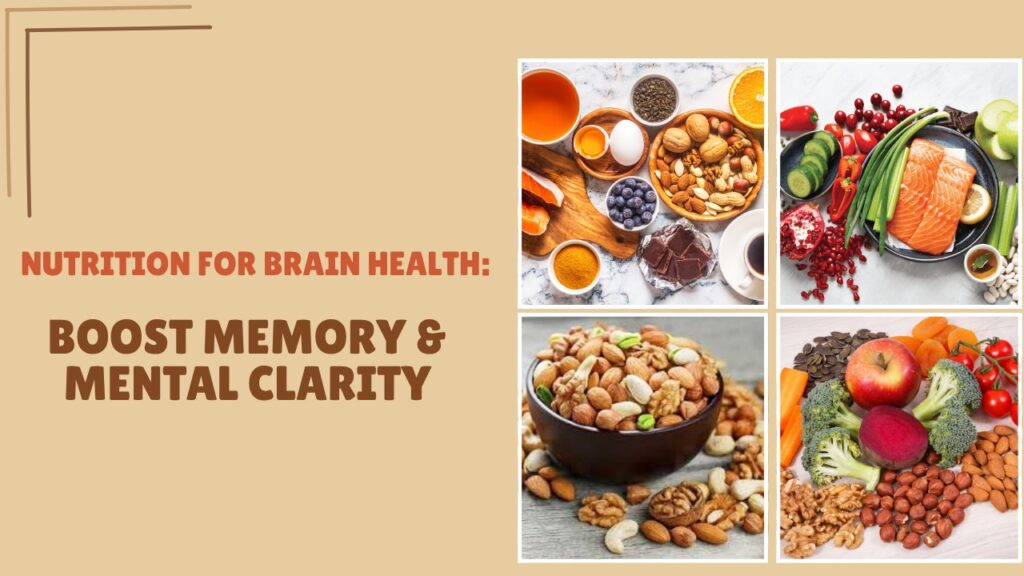The brain is the most powerful and complex organ in the human body. It controls everything you do — from how you think and feel to how your body moves and functions. It also plays a big role in your memory, decision-making, sleep, and emotions. Every second, your brain is working hard to keep you alive and well.
Like your heart and muscles, your brain needs the right kind of fuel to work its best. It uses a lot of energy, and that energy comes directly from the food you eat. If you eat poorly, your brain may not function as clearly or quickly. Focus, memory, and mood can all be affected when the brain doesn’t get proper nutrition.
That’s why eating healthy is so important for brain health. Nutritious food gives your brain the power it needs to stay sharp and strong. A well-fed brain helps you feel better, think clearly, and handle stress more easily each day.
In this in-depth article, we’ll explore how nutrition affects brain health, the key nutrients and foods that support cognitive function, what to avoid, and practical tips to boost mental clarity, memory, and overall brain performance.
Why Nutrition Matters for Brain Health
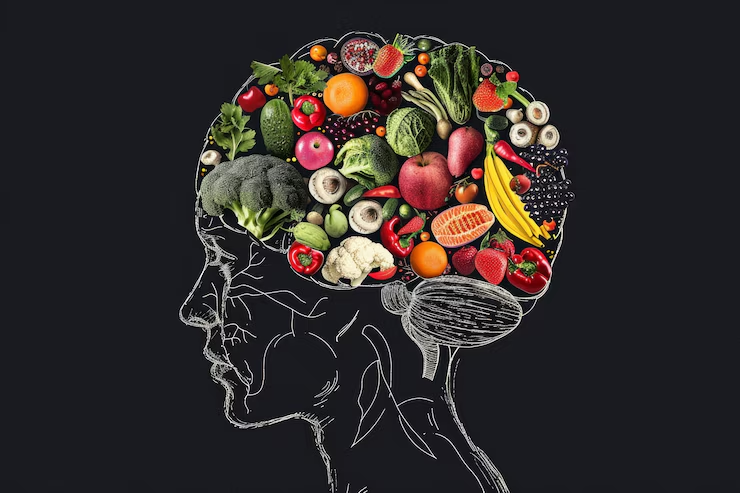
Good nutrition plays a big role in how well your brain works. The brain controls everything — from thinking and learning to emotions and movement. To do all this, it needs the right kind of fuel. That’s where healthy food comes in. Without proper nutrients, the brain can slow down, making it harder to focus, remember things, or stay in a good mood.
Eating the right foods helps support strong brain functions. Vitamins, minerals, and healthy fats all help protect the brain and keep it working smoothly. These nutrients improve memory, learning ability, and even your ability to deal with stress. That’s why nutrition for brain health is something everyone should care about.
Poor eating habits can lead to mental tiredness, mood swings, or trouble thinking clearly. Junk food and sugar-heavy diets may give a quick energy boost, but they don’t support your brain in the long run.
Focusing on nutrition for brain health means eating more fresh fruits, vegetables, whole grains, and healthy fats. When you feed your brain well, you feel better, think better, and live better.
Poor nutrition can lead to mental fatigue, memory loss, depression, and even increase the risk of neurodegenerative diseases such as Alzheimer’s and Parkinson’s.
On the flip side, a brain-healthy diet can:
Enhance focus and concentration
Improve memory
Boost mood and emotional resilience
Reduce brain fog
Delay cognitive decline
Let’s break down the key nutrients and foods that promote optimal brain function.
Top Nutrition For Brain Health
Omega-3 Fatty Acids: The Brain’s Best Friend
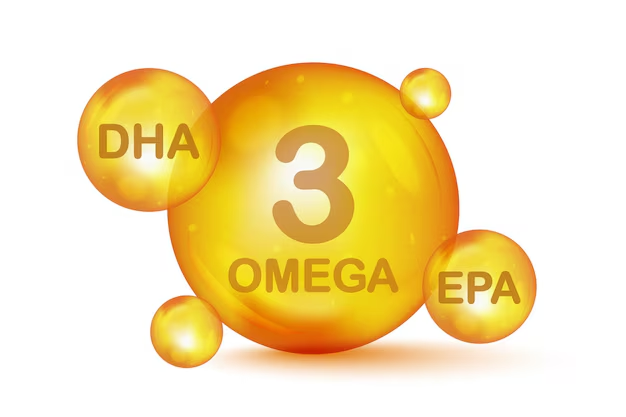
Omega-3s are healthy fats that are very important for brain health. They are a major part of the brain’s cell membranes, helping cells communicate with each other. These fats also support the function of neurotransmitters, which are chemicals that help send signals in the brain. Without enough omega-3s, the brain may not work as smoothly, which can affect memory, focus, and learning.
In addition to brain communication, omega-3s help reduce inflammation in the brain and support a healthy mood. They are often linked to lower stress levels and better emotional balance. Including omega-3-rich foods like fish, flaxseeds, and walnuts in your meals can greatly improve your overall nutrition for brain health. A steady supply of these fats helps your brain stay strong, sharp, and well-balanced.
Types:
DHA (Docosahexaenoic Acid): Found primarily in fatty fish. Crucial for brain structure.
EPA (Eicosapentaenoic Acid): Reduces inflammation and supports mood.
ALA (Alpha-linolenic Acid): Plant-based omega-3 converted into DHA/EPA in the body.
Best sources:
Salmon, sardines, mackerel, trout
Walnuts
Chia seeds
Flaxseeds
Algal oil (vegan source of DHA)
Tip: Aim for at least two servings of fatty fish per week or consider a high-quality omega-3 supplement if you don’t eat seafood.
Antioxidants: Defenders Against Brain Aging
Oxidative stress happens when harmful molecules called free radicals build up in the body and start damaging cells, including those in the brain. This process is one of the main causes of brain aging and problems like memory loss or slower thinking. Over time, too much oxidative stress can lead to serious brain conditions and weaken brain function.
Antioxidants are powerful compounds that help protect the brain by fighting these free radicals. They prevent or reduce the damage caused by oxidative stress, helping to keep brain cells healthy and active. Foods rich in antioxidants, such as berries, leafy greens, and nuts, are important for improving nutrition for brain health. Eating these foods regularly can help your brain stay strong, focused, and better protected as you age.
Key antioxidants:
Vitamin E: Protects neurons and improves memory.
Vitamin C: Supports immune function and combats oxidative stress.
Polyphenols and flavonoids: Found in colorful fruits and vegetables, they improve communication between brain cells.
Best sources:
Berries (blueberries, strawberries, blackberries)
Dark chocolate (70% cocoa or higher)
Spinach, kale, and other leafy greens
Nuts and seeds
Green tea
Tip: Add a rainbow of fruits and veggies to your diet daily to maximize antioxidant intake.
B Vitamins: The Brain’s Metabolic Powerhouses
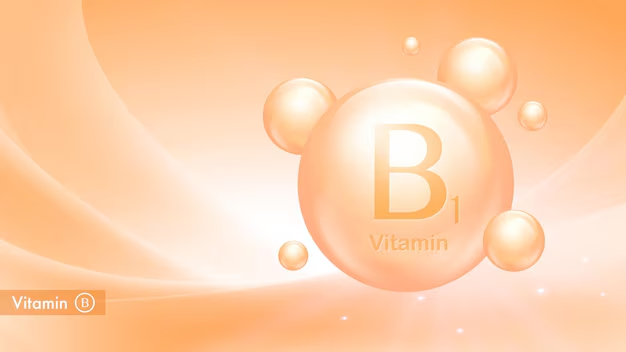
B vitamins are important for keeping your brain energized and healthy. They help turn the food you eat into energy, which your brain needs to function properly. These vitamins also play a key role in making neurotransmitters — the brain’s chemical messengers that control mood, memory, and focus.
Another key job of B vitamins is lowering homocysteine levels in the blood. High levels of homocysteine are linked to brain shrinkage and memory problems, especially in older adults. By keeping these levels in check, B vitamins help protect the brain from decline. Including foods rich in B vitamins, like eggs, whole grains, and leafy greens, is a smart part of good nutrition for brain health. These nutrients help your brain stay strong, sharp, and better protected as you age.
Most important B vitamins for brain health:
B6 (Pyridoxine): Involved in serotonin and dopamine production.
B9 (Folate): Crucial for mental clarity and memory.
B12 (Cobalamin): Prevents brain atrophy and mental decline.
Best sources:
Eggs
Leafy greens
Whole grains
Legumes
Meat and dairy (especially for B12)
Tip: Older adults and vegans may be at higher risk of B12 deficiency. Supplementation may be necessary in such cases.
Amino Acids and Protein: Building Blocks of Brain Chemicals
Neurotransmitters are brain chemicals that help send messages between brain cells. Important ones like dopamine, serotonin, and acetylcholine play key roles in mood, memory, focus, and overall brain function. These neurotransmitters are made from amino acids, which come from the protein you eat. Without enough protein, your brain may not produce these chemicals properly.
Amino acids are the building blocks of protein, and getting enough of them is essential for healthy brain communication. Foods like eggs, fish, beans, and lean meats provide these important nutrients. Including protein-rich foods in your diet supports better thinking, emotional balance, and clearer focus. This is why protein is a key part of good nutrition for brain health. Eating the right kinds of food helps your brain stay active, alert, and emotionally balanced throughout the day.
Important amino acids:
Tryptophan (for serotonin)
Tyrosine (for dopamine)
Choline (for acetylcholine)
Best sources:
Eggs (especially for choline)
Poultry (turkey and chicken)
Fish
Soy products
Beans and legumes
Tip: Include a source of lean protein with every meal to keep neurotransmitter levels balanced.
Complex Carbohydrates: Brain Fuel Without the Crash
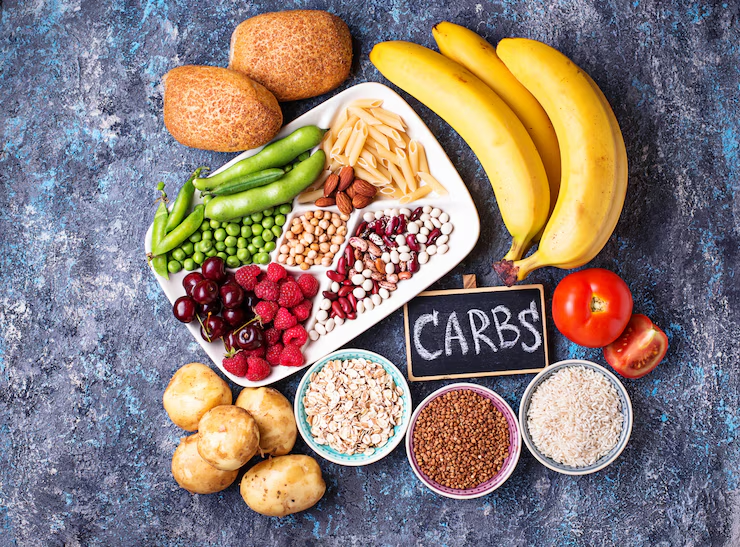
The brain mainly uses glucose for energy, which comes from the carbohydrates you eat. However, not all carbs work the same way. Simple carbs like sugar can cause quick energy spikes followed by crashes, making it hard to stay focused. These ups and downs can affect your mood, memory, and concentration during the day.
Complex carbohydrates, such as those found in whole grains, fruits, and vegetables, provide a steady supply of glucose. This helps the brain stay energized and focused for longer periods. By avoiding sudden changes in blood sugar levels, complex carbs support clearer thinking and better mental performance. Including these foods in your daily diet is an important part of good nutrition for brain health. They help your brain stay sharp, balanced, and ready to handle daily tasks with ease.
Best sources:
Whole grains (quinoa, oats, brown rice)
Sweet potatoes
Lentils and beans
Fruits (especially apples, bananas, and berries)
Vegetables
Tip: Minimize refined sugars and white flour products. They may provide quick energy but lead to brain fog and mood swings.
Healthy Fats: For Memory and Mood
The brain is made up of around 60% fat, which shows how important healthy fats are for its function. These fats act as insulation for brain cells, helping them send signals more effectively. Without enough healthy fat, the brain may struggle to work smoothly, which can affect focus, memory, and mood.
Healthy fats also help the body absorb fat-soluble vitamins like A, D, E, and K. These vitamins play a big role in protecting brain cells and supporting mental clarity. Foods like avocados, nuts, seeds, and olive oil are great sources of good fats. Including them in your meals supports strong and steady brain function. For better thinking, memory, and emotional health, healthy fats are a key part of good nutrition for brain health.
Best sources:
Avocados
Olive oil
Nuts (especially walnuts and almonds)
Seeds (flax, chia, pumpkin)
Coconut oil (in moderation)
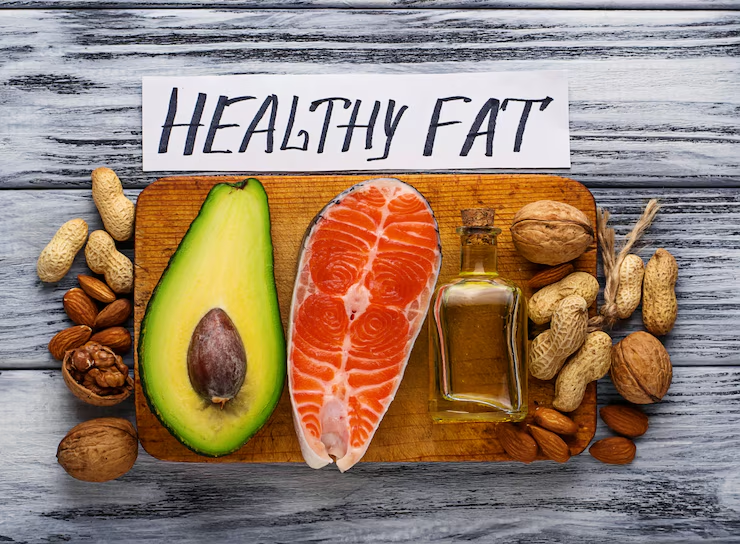
Tip: Avoid trans fats and excessive saturated fats, which are linked to cognitive decline.
Water and Hydration: Often Overlooked, Always Essential
The brain is made up of about 75% water, which means staying hydrated is very important for how well it works. Water helps carry nutrients to the brain and remove waste. When your body doesn’t get enough water, the brain can suffer, even before you feel thirsty.
Dehydration can cause confusion, irritability, and problems with focus. It may also affect short-term memory and make it harder to think clearly. Drinking enough water every day is a simple but powerful way to support your brain. Good hydration helps improve attention, mental clarity, and mood. Including enough fluids in your daily routine is an important part of nutrition for brain health. Water, along with a balanced diet, helps your brain stay sharp and function at its best.
Best sources:
Water (obviously!)
Herbal teas
Water-rich fruits like watermelon, cucumber, and oranges
Tip: Aim for 8–10 glasses of water per day, more if you’re active or live in a hot climate.
Foods That Harm Brain Health
Just as some foods fuel your mind, others can sabotage it.
Avoid or limit:
Sugar and refined carbs: Cause insulin resistance and inflammation.
Trans fats: Found in fried foods and processed snacks; linked to memory issues.
Excessive alcohol: Impairs communication between brain cells.
Artificial sweeteners: Some, like aspartame, may negatively affect mood and cognition.
Highly processed foods: Low in nutrients, high in additives and preservatives.
The Gut-Brain Connection
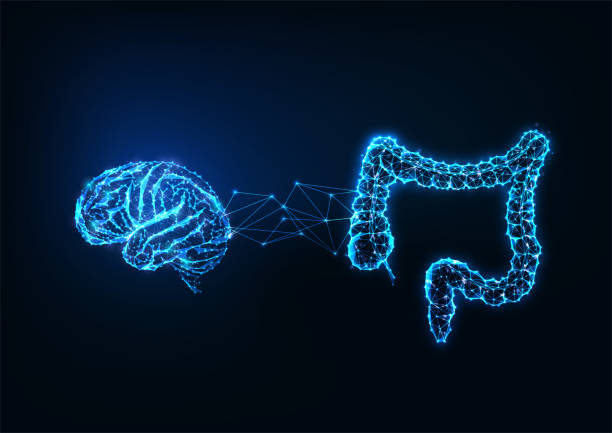
Emerging research shows a strong connection between gut health and brain health. The gut has its own nervous system (the enteric nervous system) and produces many of the same neurotransmitters as the brain.
How to support your gut for better brain health:
Eat fermented foods: yogurt, kefir, sauerkraut, kimchi
Include prebiotics: garlic, onions, bananas, leeks
Consider a probiotic supplement
Avoid antibiotics unless necessary
Lifestyle Tips to Maximize Nutrition Benefits
Exercise regularly: Physical activity enhances blood flow to the brain, which improves oxygen and nutrient delivery. Regular exercise also supports neurogenesis, the process of creating new brain cells. This helps maintain cognitive function and sharpness. Pairing exercise with good nutrition for brain health can significantly boost mental performance and resilience.
Sleep well: Sleep is crucial for the brain to detoxify and consolidate memories. During deep sleep, the brain removes harmful toxins that build up during the day. Adequate sleep also strengthens memory and learning abilities. Along with good nutrition for brain health, sleep allows the brain to recharge, ensuring it operates at its best.
Manage stress: Chronic stress can deplete essential brain nutrients and shrink gray matter, which is responsible for processing information. Long-term stress negatively impacts memory, focus, and emotional balance. Managing stress through relaxation techniques, mindfulness, or exercise is key to preserving brain health.
Stay mentally active: Engaging in mentally stimulating activities, such as reading, puzzles, or learning new skills, helps boost brain plasticity. It encourages the brain to form new connections and adapt to challenges. Regular mental exercise, combined with proper nutrition for brain health, can help maintain cognitive vitality.

Socialize: Meaningful social interactions are vital for mental health and can help delay cognitive decline. Regular socializing stimulates brain activity, improves mood, and enhances emotional well-being. By staying socially engaged and supporting brain health through nutrition, you can help safeguard your cognitive function as you age.
Supplements for Brain Health: Do You Need Them ?
Common brain-supporting supplements:
Omega-3 fish oil
Vitamin D (especially if you’re deficient)
B-complex
Lion’s Mane mushroom (for neurogenesis)
Ginkgo biloba (for circulation and memory)
Caution: Always consult a healthcare provider before starting any supplement.
Conclusion
In conclusion, nutrition for brain health is not just a trendy concept—it’s a vital foundation for mental clarity, emotional well-being, and long-term cognitive function. What we eat directly influences how we think, feel, and perform daily tasks. By prioritizing a diet rich in omega-3 fatty acids, antioxidants, B vitamins, and healthy fats, and by staying hydrated and limiting processed foods, we can nourish our brains for optimal performance.
Combining these dietary choices with an active lifestyle, quality sleep, and stress management can further protect against cognitive decline and mental fatigue. Whether you’re aiming to boost focus, improve memory, or simply maintain mental sharpness as you age, embracing balanced nutrition for brain health offers a natural, effective solution. Remember, every bite counts — feed your brain well today for a brighter, sharper tomorrow.
FAQs
Why is nutrition important for brain health ?
Nutrition is essential for brain health because it provides the brain with the necessary nutrients to function properly. Nutrients like healthy fats, vitamins, and minerals support brain cell communication, memory, focus, and mood regulation. A balanced diet can improve cognitive performance and protect the brain from age-related decline.
How does exercise impact brain health ?
Exercise improves blood flow to the brain, which increases oxygen and nutrient delivery to brain cells. It also supports neurogenesis, helping create new brain cells and boosting mental sharpness. Regular physical activity, combined with proper nutrition for brain health, can enhance cognitive function and protect against neurodegeneration.
What role does sleep play in brain health ?
Sleep is crucial for brain health as it allows the brain to detoxify, remove waste, and consolidate memories. During deep sleep, the brain processes information from the day, helping with learning and memory retention. Quality sleep, along with good nutrition for brain health, supports mental clarity and overall brain function.
How can stress affect brain health ?
Chronic stress can harm brain health by depleting essential nutrients and shrinking gray matter, which impacts memory and cognitive function. Long-term stress can also lead to emotional imbalances and mental fatigue. Managing stress through relaxation techniques and a nutritious diet helps protect the brain from these negative effects.
How can I keep my brain sharp as I age ?
To keep your brain sharp as you age, focus on staying mentally active by engaging in activities like reading, puzzles, or learning new skills. Maintaining regular social interactions, exercising, managing stress, and following a balanced diet with nutrition for brain health are all essential for preserving cognitive function and delaying cognitive decline.
